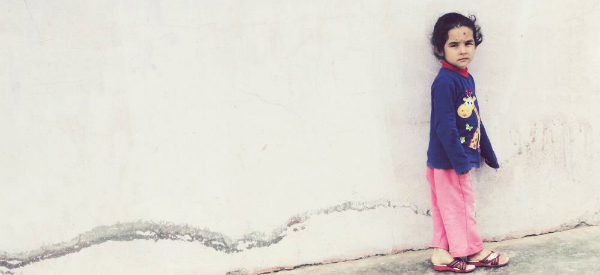
Twenty years ago this week the Rwandan genocide began.
Since then we've filled museums with haunting relics, held memorials remembering the hundreds of thousands of victims senselessly slaughtered, and solemnly declared the words, "never again" from podiums throughout the world.
We've said those words so many times.
"Never again."
We'll never let it happen again. We'll never stand by while innocent women, men, and children are slaughtered, hacked to death in their homes, in schools, in places of worship, burned to death, bludgeoned to death, shot. We'll never let it happen again.
But how can we even say those words today, how can we utter those words on this solemn anniversary?
We're saying "never again" as we watch a genocide unfold in real time in Syria.
"Never again."
I thought of these words during a recent visit to the Syrian border, where I met victims who had been pulled from the wreckage of barrel bomb attacks and rushed to a Syrian border hospital. Here, children lie paralyzed in rows of beds, their tiny spines punctured by a sniper's gun.
Increasing evidence now shows that Assad regime snipers target children and pregnant women in a sick war game, awarding with cigarettes the snipers who hit their civilian targets. "Deliberate," and "hell beyond hell" is how Dr. David Nott, a British surgeon, described the injuries he witnessed at a Syrian hospital.
But where is our outrage? We're mouthing "never again" while silently regarding the plight of an entire generation of Syria's children.
Within the last two years, the Assad regime has incorporated "barrel bombs" into the arsenal of terror weapons used against the civilian population. Packed with TNT and shrapnel, the bombs are frequently dropped by helicopters on neighborhoods full of women and children.
One woman I visited at a hospital on the Syrian border described hearing the sound of a helicopter rotor and rushing to seek cover with her family. In seconds she saw limbs flying through the air as shrapnel from the bomb carved its bloody path through the bodies of her mother, sister, and five small nephews. When the attack was over, she looked down and realized one of her own legs had been severed. In the distance she could hear more helicopters on the approach.
There wasn't enough time to bury her family members that day, she told me. With her father's help, she was able to grab only the school photos of her nephews, her last remaining relic of the family she had lost so suddenly.
That day at the hospital she carefully showed me these photos, describing how each one had been killed. "This one was beheaded," she told me, pointing to a photo of her five-year-old nephew. She and her father were the only surviving members of her family. They fled across the border.
Bloodied bodies hacked to pieces whether by Assad's shrapnel or the machetes of the Hutu militia demonstrate an unspeakable horror that occurred in Rwanda twenty years ago and is unfolding today across Syria.
Technological advancements and social media prevalence have ensured that we have more access to the Syrian crisis than has ever been possible in a war zone. Yet we have somehow become immune to the images on our screens.
Today, we're all remembering the Rwandan genocide -- as well we should. But we can't spend all of our time looking back while we're saying "never again." We can't say "never again" today while we silently allow cruelty to continue in another corner of the world.
Today I hope that the Rwandan genocide anniversary serves as a catalyst for our action, spurring us to shatter our silence, and compelling us to act.
Politicians and government leaders often excuse their inaction on Syria with words like "complicated." And we know that many government leaders once felt the same way about Rwanda.
When I traveled to the Syrian border I found a different reality. Complications exist, yes, but the reality of human suffering on this scale demands a very simple response: action. Truly, no setting wherein human beings are being bombed, shot, gassed, and chopped into pieces en masse should ever be considered too complicated for our intervention.
Instead of a complicated mess on the Syrian border, I found people just like you and me, who need people just like you and me. Today, I hope the solemn anniversary of the Rwandan genocide serves as a catalyst for us to shatter the silence on Syria, compelling us to take real action to end this horror.
If we are going to use the words "never again," we must back them up with our action.
"Never again" is now.

